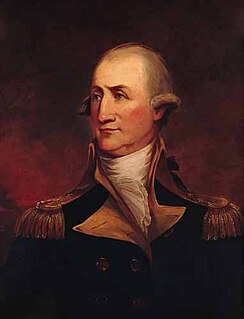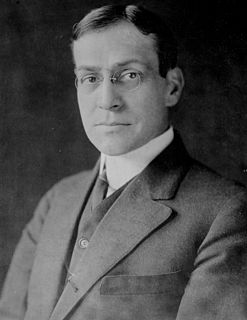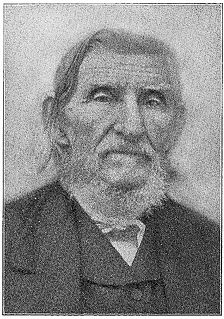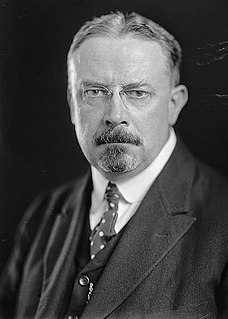| Frederick Hermann Knubel | |
|---|---|
| Born | May 22, 1870 New York City |
| Died | October 16, 1945 |
| Nationality | U.S. |
| Known for | first president of the United Lutheran Church in America |
Frederick Hermann Knubel (May 22, 1870 – October 16, 1945) was a U.S. Lutheran clergyman and first president of the United Lutheran Church in America from 1918 to October 1944.

The United States of America (USA), commonly known as the United States or America, is a country composed of 50 states, a federal district, five major self-governing territories, and various possessions. At 3.8 million square miles, the United States is the world's third or fourth largest country by total area and is slightly smaller than the entire continent of Europe's 3.9 million square miles. With a population of over 327 million people, the U.S. is the third most populous country. The capital is Washington, D.C., and the largest city by population is New York City. Forty-eight states and the capital's federal district are contiguous in North America between Canada and Mexico. The State of Alaska is in the northwest corner of North America, bordered by Canada to the east and across the Bering Strait from Russia to the west. The State of Hawaii is an archipelago in the mid-Pacific Ocean. The U.S. territories are scattered about the Pacific Ocean and the Caribbean Sea, stretching across nine official time zones. The extremely diverse geography, climate, and wildlife of the United States make it one of the world's 17 megadiverse countries.

The United Lutheran Church in America (ULCA) was established in 1918 in commemoration of the 400th anniversary of the Protestant Reformation after negotiations among several American Lutheran national synods resulted in the merger of three German-language synods: the General Synod, the General Council (1867), and the United Synod of the South (1863). The Slovak Zion Synod (1919) joined the ULCA in 1920. The Icelandic Synod (1885) also joined the United Lutheran Church in America in 1942.
Contents
Knubel was born in New York City to Friedrich (Frederick) C. Knubel (1827-1908), a German-born grocer who had immigrated in 1855, and his wife, Katherine.

The City of New York, usually called either New York City (NYC) or simply New York (NY), is the most populous city in the United States and in the U.S. state of New York. With an estimated 2017 population of 8,622,698 distributed over a land area of about 302.6 square miles (784 km2), New York is also the most densely populated major city in the United States. Located at the southern tip of the state of New York, the city is the center of the New York metropolitan area, the largest metropolitan area in the world by urban landmass and one of the world's most populous megacities, with an estimated 20,320,876 people in its 2017 Metropolitan Statistical Area and 23,876,155 residents in its Combined Statistical Area. A global power city, New York City has been described as the cultural, financial, and media capital of the world, and exerts a significant impact upon commerce, entertainment, research, technology, education, politics, tourism, art, fashion, and sports. The city's fast pace has inspired the term New York minute. Home to the headquarters of the United Nations, New York is an important center for international diplomacy.
He was educated in Gettysburg, Pennsylvania and at the Theologisches Seminar and University of Leipzig.

Gettysburg is a borough and the county seat of Adams County in the U.S. state of Pennsylvania. The Battle of Gettysburg (1863) and President Abraham Lincoln's Gettysburg Address are named for this town. The town hosts visitors to the Gettysburg National Battlefield in the Gettysburg National Military Park. As of the 2010 census, the borough had a population of 7,620 people.
He was a pastor in New York from 1896 to 1918.
On July 2, 1924, he offered the invocation at the opening of the twelfth session of the 1924 Democratic National Convention. [1]

An invocation may take the form of:
The 1924 Democratic National Convention, held at the Madison Square Garden in New York City from June 24 to July 9, 1924, was the longest continuously running convention in United States political history. It took a record 103 ballots to nominate a presidential candidate. It was the first major party national convention that saw the name of a woman, Lena Springs, placed in nomination for the office of Vice President. John W. Davis, a dark horse, eventually won the presidential nomination on the 103rd ballot, a compromise candidate following a protracted convention fight between distant front-runners William Gibbs McAdoo and Al Smith.














